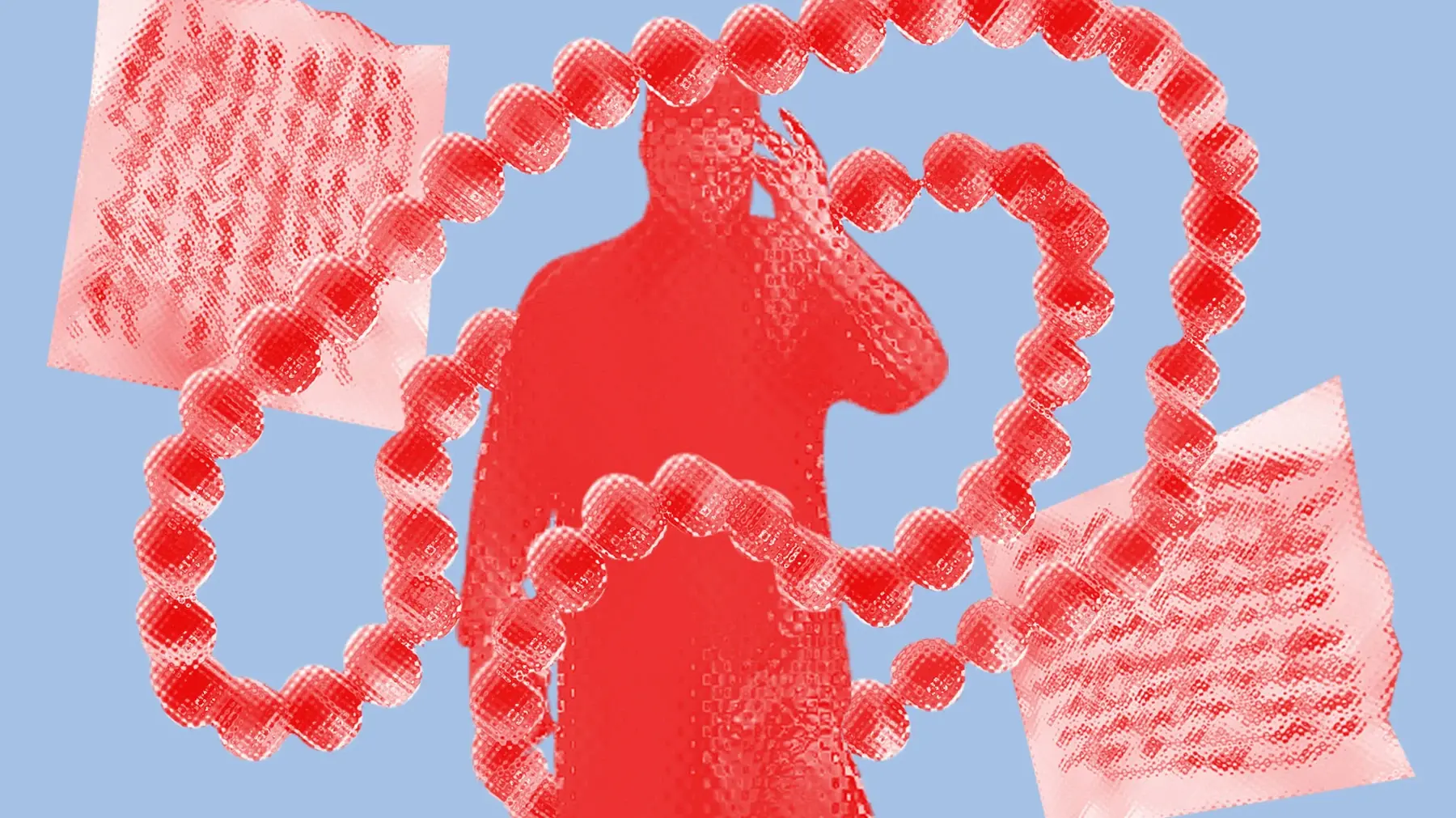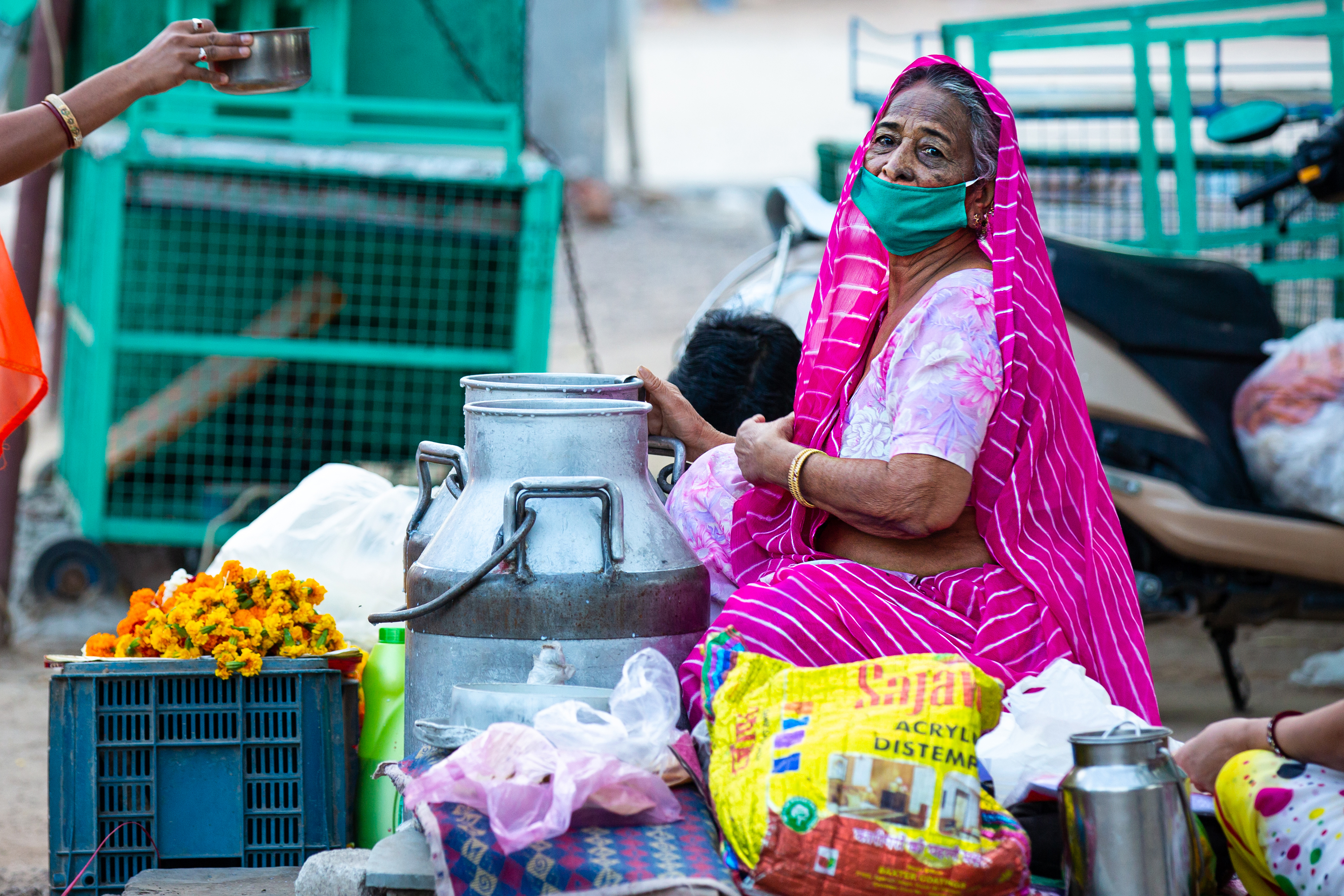
“These boys are now men and seek justice for crimes that have affected their whole lives.”
Content warning: This story includes graphic descriptions of sexual violence to minors that may be disturbing to readers.
SRINAGAR, Kashmir — Ehsan Wani was 14 years old when he first visited Aijaz Ahmad Sheikh’s house. The towering, enigmatic man in his fifties with a red beard had a large spiritual following among Muslims in Indian-administered Kashmir. Many people in the region suffer from collective trauma from years of state suppression, militancy and conflict in the world’s most militarised zone. Ehsan’s family was going through a difficult time when Sheikh told them he could help, if they left their son overnight at his house.
Sheikh claimed that he could summon jinns at night who only talk to young children, which was why Ehsan’s presence was necessary. According to Islamic mythology, a jinn is a spirit able to possess humans, perform magic, and resolve earthly problems.
Two days later, Ehsan spent a night at Sheikh’s house along with another child, whom he didn't know. The boys called Sheikh “Pir Baba”, a title used for spiritual healers in South Asia.

As a nonprofit journalism organization, we depend on your support to fund more than 170 reporting projects every year on critical global and local issues. Donate any amount today to become a Pulitzer Center Champion and receive exclusive benefits!
“Pir Baba told me that he would talk to the jinn and directed us to remove our trousers,” Ehsan told VICE World News. Ehsan’s name and those of other abuse survivors mentioned in this story have been changed to protect their privacy.
When Ehsan refused to take off his trousers, he said Sheikh stripped the pants off both boys and forced them to have sex with each other while he watched.
Sheikh then threatened the children not to tell anyone, otherwise he would put their lives in danger.
No one in Ehsan’s family knew about the alleged abuse, and his family continued to send him to the Sheikh’s house for two years. His story is not unique. VICE World News has obtained multiple court documents along with police records of disturbing testimonies from seven boys and two parents who alleged sexual abuse by Aijaz Ahmad Sheikh. Many of those boys are now adults.
No one in Ehsan’s family knew about the alleged abuse, and his family continued to send him to the Sheikh’s house for two years. His story is not unique.
“They were little boys when they were lured to the home of a faith healer on the pretext that he could speak to jinn through the children,” Mariam Faruqi, the managing director of iProbono who represents many survivors in this case, told VICE World News. “He severely and serially sexually abused these boys over the years while they were in his care. These boys are now men and seek justice for crimes that have affected their whole lives.”
Ehsan and the other survivors have been waiting for justice since 2016, when Sheikh was first arrested, only to be released on bail 45 days later. Official court records show that at least three cases are pending against Sheikh apart from preventive detention under the Public Security Act. In July this year, he was once again detained as he failed to appear in multiple court hearings. However, he managed to post bail within a fortnight. The Kashmir police, as well as Sheikh, did not respond to queries from VICE World News about the allegations against Sheikh.
Despite the serious charges against him, Sheikh remains a free man, and his faith-healing business is thriving. VICE World News visited Sheikh in April.
Outside Sheikh’s house, a man told VICE World News he had been a follower for over ten years, and that he had brought his son into the fold. “My son has been visiting regularly for the last three months. He had already spent many nights at Sheikh's house. Now we visit Pir Baba every Sunday. I am grateful for his blessings.”
In North Kashmir, everyone knows Sheikh. Some fear him, while many worship him. Many are unwilling to hear anything negative about him, and questions surrounding the abuse allegations mostly went unanswered among his community. When we visited Sheikh’s house, his room was packed with followers seeking remedies for life’s troubles, from physical illness to mental traumas.
In the middle of the room, three young boys were sitting in silence. Sheikh then asked two of them to respond to a query from a follower. The boys only responded when Sheikh raised his voice. Sheikh claimed it was a jinn who was speaking through the boys. Taking their cues from Sheikh, the boys stated the follower’s family history and then suggested some rituals. In the end, Sheikh asked the follower if he could bring his son so he could make him talk directly to the jinn. He said, “If you don’t trust these boys, you will at least trust your own boy.”
Many survivors, including Ehsan, were groomed into believing that it is the jinn in the body of the faith healer that assaulted them. Basharat, who was 10 years old when he was abused, explained, “At night, Sheikh would first recite Quranic verses to call the jinn. At the end of the verses, he convulsed and switched his language from Kashmiri to Urdu. That was our cue that the jinn was inside his body.”
“After that, Sheikh pretended that it was a jinn who was molesting us, not him. As children, we believed in what was told to us.”
In North Kashmir, everyone knows Sheikh. Some fear him, while many worship him.
Amir, who was 14 at the time, said, “At night, Sheikh took off my clothes as he wanted to assess my age. Later, he told me that a jinn will enter his body. Then the jinn told me in Urdu to keep my eyes downward, otherwise my body would be burned. He then asked me to sleep with him. I was very scared. He gave me extreme pain.”
Many testimonies also revealed that, after allegedly raping the boys, Sheikh often also shamed them into silence. Basharat said, “After molestation, Sheikh forced me to remove my clothes once again to check if I had indulged in some ‘sin.’ Then he would look at my body and blame me for indulging with the jinn. After shaming me, he warned me not to tell this to anyone, otherwise the jinn would kill me and my family.”
Basharat, now 31, still hasn’t told his parents about his ordeal. Sultan confided in his younger brother and learned that he, too, was allegedly raped by Sheikh. His brother still believed that it was a jinn who raped them.
All of Sheikh’s known victims were boys. “It makes it even harder for us to come forward in such a situation because no one believes that men can be raped. It is expected of us to carry on and be tough,” said Basharat.
Somya Bhardwaj, a counselling psychologist based in Chandigarh, said that the abuse these boys endured may have become even more severe because traditional gender expectations force them into shame and silence. “In many cases of abuse we have seen that men often bottle up the trauma instead of revealing it to their friends or family because they themselves expect them to be ‘strong.’ Often they mirror societal expectations, leading to unhealthy coping mechanisms and over the years the trauma becomes stronger.”
Faruqi, the lawyer representing the survivors, added that existing laws are evidently not enough to protect children from sexual abuse. “It is not just another case of child sexual abuse. It is child abuse in the garb of superstition.”
“Superstition couched in religious belief provides a shield for paedophiles to manipulate families and access children with no legal repercussions,” Faruqi said. “The law needs to change to take into account the everyday impact of archaic tribal systems as well as superstition on vulnerable people.”
“Superstition couched in religious belief provides a shield for paedophiles to manipulate families and access children with no legal repercussions.”
South Asia has a history of alternative healing methods that often turn exploitative and abusive. Harsh faith healing practices can include branding with rods, chaining in temples, exorcism of jinn and ghosts, and animal sacrifices.
India has no national laws against crimes of superstition. Kashmir, in particular, is fertile ground for such superstitions. Constant military curfews and lockdowns in the region make reporting such crimes more difficult than in less conflicted areas. The multiple cases that have come out of Kashmir are likely only the tip of the iceberg.
In 2013, a 13-year-old girl in Kashmir was allegedly raped by a faith healer in his mid-fifties. When the girl complained of pain in her abdomen, the family took her to the same faith healer for a cure. In neighbouring Jammu in 2015, a 30-year-old faith healer was arrested for allegedly raping a minor. In 2020, a self-styled faith healer was arrested in South Kashmir on charges of rape.
But because the law does not acknowledge superstition as a source of or accessory to crimes, influential and predatory personalities like faith healers are rarely questioned, and their actions go mostly unchecked. In places like Kashmir, where faith healing is widely embraced, many parents still unquestioningly leave their children in the hands of supposed mystics like Sheikh, inadvertently perpetuating the harrowing cycle of abuse.









